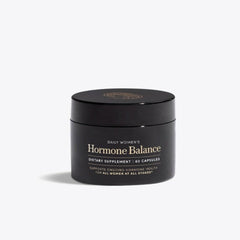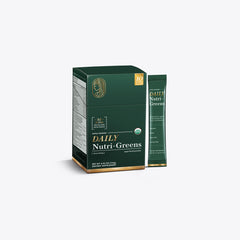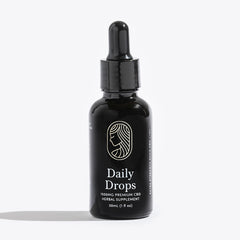 Endocrine disruptors (EDCs) are a concerning class of chemicals that can interfere with the normal function of your endocrine system, the network of glands responsible for hormone production. These hormones (like estrogen, progesterone, testosterone, and thyroid hormones) regulate crucial processes like growth, development, metabolism, and reproduction, and when EDCs get into our bodies, they can mimic or block natural hormones, leading to potential health problems.
Endocrine disruptors (EDCs) are a concerning class of chemicals that can interfere with the normal function of your endocrine system, the network of glands responsible for hormone production. These hormones (like estrogen, progesterone, testosterone, and thyroid hormones) regulate crucial processes like growth, development, metabolism, and reproduction, and when EDCs get into our bodies, they can mimic or block natural hormones, leading to potential health problems.
Science is actively exploring all the ways that endocrine disruptors impact our health. According to the Endocrine Society, they can have an impact on puberty, fertility, sexual health, nervous system and neurological health, immune health, metabolic function (including body weight and blood sugar regulation), and cardiovascular health. Unfortunately, endocrine disruptors are all around us – including in our soil, air and water – but we can take steps to reduce our contact with them as well as to minimize their impact on our health. Here are some things you can do to take control of your exposure to endocrine disruptors:
Food exposure
- Buy organic meat and fish, or trim fat from non-organic sources.
- If you consume dairy, try to consume organic as much as possible.
- Avoid the use of non-stick cookware, or regularly replace non-stick pans. Switch to ceramic-coated, stainless steel, or other types of cookware
- Do not microwave anything in plastic. Try to generally avoid #3, #6, and #7 plastics.
- As much as possible select glass, porcelain, or stainless-steel containers for food and beverage storage.
- If you can, buy organic produce and drink filtered water.
Beauty and personal care

- Look for products labeled Phthalate-Free, BPA-Free, and Paraben-Free.
- Opt for natural cosmetics and body care when possible.
- Avoid synthetic fragrances, choose products made with pure essential oils or choose unscented products.
- Pro tip: if you are unsure about an ingredient you can check it in the Environmental Work Group’s Skin Deep® Database.
Household
- Consider having your water tested, especially if you have a well. The Environmental Protection Agency has resources for this here.
- Avoid burning trash and make sure that wood fires are well-ventilated.
- If you smoke, only do so outdoors, especially avoid smoking near children and pregnant women.
- Opt for natural cleaning products whenever possible.
- Assure good air circulation in your home and be mindful of changing air filters on schedule
- Keep houseplants that help to filter toxins from the air. This is a good list from Cornell University: https://warren.cce.cornell.edu/gardening-landscape/warren-county-master-gardener-articles/houseplants-for-healthier-indoor-air
- Don’t keep vehicles running in your garage any longer than needed.
- Stay aware of the air quality where you live and work. You can check your air quality here, or download their app.
- Minimize the use of flame-retardant fabrics for things you come into contact with regularly (sofas, clothing, etc).
Nutrition
Unless you live on top of a mountain (and maybe even if you do!), avoiding all endocrine disruptors is probably not possible. In addition to minimizing contact, you can also use supporting nutrition to help lessen the impact of these compounds on your health. Some additional supportive nutrition strategies include:

- Ensuring that you are getting healthy levels of folate and iron; women should have 400 micrograms of folate and 150 mcg of iodine each day.
- Making sure you consume good sources of dietary fiber each day. Fiber assures adequate elimination and helps to bind toxins in the gut to support their removal from the body – a supplement such as Daily Nutri-Greens can help you get the fiber you need from quality organic sources.
- Consume sources of sulforaphane and glucoraphanin – compounds found in cabbage, brussels sprouts, cauliflower, kale, broccoli, mustard greens, turnips, and radishes. You can also take it in a supplement like Daily Hormone Balance! The active ingredients in Daily Hormone Balance are the most potent bioactives found in broccoli and mustard seed (sulforaphane, glucoraphanin, and myrosinase), and these compounds help to naturally protect your cells from the impact of environmental toxins and promote the normal pathways that the body uses for detoxification.
References:
- Iahtisham-Ul-Haq, Khan S, Awan KA, Iqbal MJ. doi:10.1111/jfbc.13886
- Atwell, LL (2015). Characterizing the Roles of Dietary Sulforaphane in Human Health.
- Atwell LL, Hsu A, Wong CP, et al. doi:10.1002/mnfr.201400674
- Endocrine-Disrupting Chemicals (EDCs). Published January 24, 2022. Accessed February 2, 2024. https://www.endocrine.org/patient-engagement/endocrine-library/edcs
- Houseplants for Healthier Indoor Air. Cornell Cooperative Extension. Accessed February 2, 2024. http://warren.cce.cornell.edu/gardening-landscape/warren-county-master-gardener-articles/houseplants-for-healthier-indoor-air
- Corbett GA, Lee S, Woodruff TJ, et al. doi:10.1002/ijgo.14126



